In recent years, artificial intelligence (AI) has evolved from a trendy topic into a fundamental aspect of our everyday lives. It’s not just a tool; it’s a transformative force that’s changing how we engage with everything around us—whether it’s healthcare, finance, education, or entertainment. In this post, we’ll take a closer look at how AI is advancing, its real-world applications, and the ethical questions that arise along the way.
What Is AI Technology?
AI, when it boils down to it, is basically the capability of machines to imitate human intelligence. They may affect how you think, learn, and make decisions AI is a vast field that involves technologies such as machine learning (ML), natural language processing (NLP), robotics, and computer vision. Besides, these systems just get better with time and can now analyse incredible datasets to generate new insights which were otherwise intractable.
Key Advancements in AI
1. NLP (Natural Language Processing)
One example of a recent AI milestone is that of natural language processing, or NLP, which allows machines to comprehend and even generate human conversation. Chat bots, translation apps, and virtual assistants that we use on a daily basis are powered using this technology to give better user experiences and make information more accessible.
2. Computer Vision
Computer vision uses machines to interpret visual data so that they can see images and video. This technology is revolutionizing industries from facial recognition to self-driving cars. Computer vision is changing that — in fashion and beyond. Here, we take a brief look at how computer vision technology can help retailers streamline inventory management whilst fusing online engagement with physical stores.
3. Machine Learning
Building algorithms to allow computers to learn from data and to make predictions is the spirit that drives machine learning. Learn how this technology is leading the way in Finance–for good reasons: they are able to detect fraud, assess risks, and optimize trading routines. In healthcare, it is responsible for identifying diseases and individualized treatment.
4. RPA (Robotic Process Automation)
RPA is used to automate redundant processes in wide range of business domains using AI. This simplifies operations and lowers the risk of human errors, at the same time allowing employees to focus on other important tasks that are more complex and strategic than changing purchase orders resulting in higher productivity and cost savings.

AI in Our Daily Lives
AI is increasingly woven into the fabric of our everyday experiences. Here’s how it shows up in our lives:
- Personalized Recommendations: Services like Netflix and Spotify leverage AI to curate recommendations based on our individual preferences, enhancing our enjoyment of movies and music.
- Smart Home Devices: Whether it’s smart thermostats that learn our routines or security cameras that alert us to unusual activity, AI is making our homes more efficient and secure.
- Healthcare Innovations: AI tools analyze medical information to support healthcare professionals in diagnosing illnesses, predicting patient outcomes, and creating tailored treatment plans.
Ethical Considerations
While the rise of AI brings many benefits, it also leads to ethical challenges we cannot overlook:
- Privacy Concerns
AI systems rely on vast amounts of data, including sensitive personal information. Protecting user privacy is essential, and while regulations like GDPR are steps in the right direction, there’s still much work to be done. - Bias and Fairness
AI algorithms can unintentionally reinforce biases found in their training data, resulting in unfair treatment in areas such as hiring and law enforcement. Ongoing monitoring and improvement of these algorithms are crucial to mitigating bias. - Job Displacement
The automation enabled by AI can lead to job losses in certain sectors. Although new roles will emerge, upskilling and reskilling the workforce will be vital for navigating this evolving job market.
Looking Ahead: The Future of AI
The future of AI is brimming with potential. As technology progresses, we can anticipate even more sophisticated applications, from advanced virtual assistants to AI-driven research in science and environmental conservation. It’s essential for governments, businesses, and communities to collaborate, ensuring AI’s benefits are shared equitably and that ethical considerations remain a priority.

Conclusion
AI is undeniably shaping our future. Embracing its possibilities while addressing ethical implications is crucial for realizing AI’s full potential. From boosting productivity to revolutionizing healthcare and enhancing our daily lives, the journey of AI is just beginning, and its impact will continue to unfold in ways we can’t yet foresee.
Let’s explore this exciting landscape together!











I was just as captivated by your creations as I was. The drawing you’ve created is stunning, and the writing you’ve done is sophisticated. However, your remarks indicate that you are worried about the possibility of engaging in something that may be seen as dubious. I’ll be able to resolve this quickly.
I do not even know how I ended up here but I thought this post was great I do not know who you are but certainly youre going to a famous blogger if you are not already Cheers
I have been browsing online more than three hours today yet I never found any interesting article like yours It is pretty worth enough for me In my view if all website owners and bloggers made good content as you did the internet will be a lot more useful than ever before
I was recommended this website by my cousin I am not sure whether this post is written by him as nobody else know such detailed about my trouble You are amazing Thanks
Thanks I have recently been looking for info about this subject for a while and yours is the greatest I have discovered so far However what in regards to the bottom line Are you certain in regards to the supply